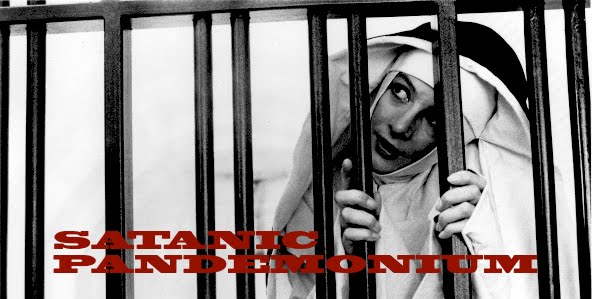Rainer Werner
Fassbinder, 1969
Starring: Ulli
Lommel, Rainer Werner Fassbinder, Hanna Schygulla
Franz, a minor
criminal, is called to meet with a larger crime syndicate who insists that he
join their organization. He refuses and his beaten. A handsome young gangster,
Bruno, is sent to follow Franz back to Munich. Though Franz gives him an old
address, Bruno eventually tracks him down through the lovely Joanna; Franz is
both her pimp and boyfriend. To gain Franz’s trust, Bruno kills a man he’s
hiding from, along with a waitress who witnesses the shooting. Though he is
arrested, there is no evidence. Bruno, Joanna, and Franz’s threesome intensifies
and they plan a bank robbery, though Joanna begins to get cold feet…
Rainer Werner
Fassbinder’s first feature film followed on the heels of such early New German
Cinema efforts as Volker Schlöndorff’s Young
Törless and Alexander Kluge’s Yesterday
Girl (both released in 1966). Though Love is Colder Than Death was met with negative reception upon the
film’s release, Fassbinder effectively revolutionized and took over the
movement. This nihilistic blend of American gangster movie, film noir, Jean-Pierre
Melville’s Le Samouraï (1967), Godard’s
Band of Outsiders (1964), and Brecht’s
theatrical philosophies, this would set the stage for Fassbinder’s prolific
early period and insure an increasing amount of critical attention. Love is Colder Than Death is an experimental,
emotional detached, and challenging work, the thrilling herald of a hypnotic career
from one of cinema’s geniuses.
Dedicated to directors
Claude Chabrol, Eric Rohmer, Jean-Marie Straub, and characters Linio and Cuncho
from spaghetti western classic, Bullet
for the General (1966), Fassbinder immediately begins the film with a
declaration of his influences and inspirations. Though Love is Colder Than Death is essentially a stark crime film with
complicated relationships and a somewhat tragic conclusion, it is sprinkled
with some welcomes instances of dark humor. The cinematic in-jokes Fassbinder
uses – such as naming one of the victims Erica Rohmer – would continue
throughout his career. There’s a particularly hilarious scene where Bruno and
Joanna rob a store, covering up the crime with a purchase of toilet paper. This feels like a comic extenuation of the
illicit drugstore meeting in Double
Indemnity. There are many references to other films, including another
funny scene where Franz stumps a shop girl with his question to find a pair of
sunglasses like those worn by the cop in Hitchcock’s Psycho.
But these light
moments are few and far between. This is a film full of seemingly emotionless
protagonists with basic dialogue and a stark set. The cinematography from
Fassbinder’s early collaborator Dietrich Lohmann is almost oppressive in its
flatness and emptiness. The characters congregate in empty rooms with blank,
white walls. When they go out into Munich, the streets are ominously empty. I’m sure this was unintentional and is due to
Fassbinder’s budget, but it serves to illuminate the fantasy world growing
around the three criminals. Fassbinder suggests that they are trapped in the
capitalist system just like everyone else and are mistaken to glorify crime
(over normative social values).
Franz, Joanna,
and Bruno are as inhibited as the bourgeois characters that haunt Fassbinder’s
later films. They adorn costumes – leather jackets, fedoras, overcoats, and
dark glasses – and pretend to be ruthless murderers and arch-gangsters. But
they are trapped by this pretending, as they are unable to forge a new path for
themselves. The gay subtext present in the relationship between Franz and Bruno
– who clearly desire each other – is a theme that would not be fully realized
until later in Fassbinder’s career. The complex, often homoerotic relationships
between men is a regular feature of American gangster movies and, even more so,
film noir. The sense of perpetual frustration and longing between Franz and
Bruno is the film’s emotional core, though they are forced to channel these
feelings through Joanna.
Their
interactions through her – which soon turns into Franz forcing Joanna to have a
sexual relationship with both men – seem to become obvious, and it is likely a
sense of jealousy that inspires her to call the police before their planned
robbery. She seems to sense that their desire for each other is stronger and
she will eventually be abandoned. Here, Fassbinder is likely including – or predicting
– elements of his own life. Though he identified as homosexual and had many
boyfriends, he generally also had a primary female partner. Interestingly Hanna
Schygulla (Joanna) was one of the few actresses who worked with him repeatedly
but only maintained a distant friendship. She is excellent here, and Joanna
introduces some of the common themes Schygulla would represent throughout
Fassbinder’s films: naiveté, selfishness, and vanity, mingled with a sense of
loss or abandonment.
Fassbinder gives
a solid performance here as the enigmatic, animalistic Franz. It’s incredible
to think that he directed such an impressive first film and wrote the script, designed the sets, and starred. His co-star, the
handsome Ulli Lommel, was not from Fassbinder’s theater group, he went on to
become a regular fixture in Fassbinder’s films. Also look out for other regular
players in small roles, such as Katrin Schaake, Liz Soellner, Gisela Otto, and composer
Peer Raben and future Fassbinder star Kurt Raab in small roles. Also keep an
ear out for Raben's excellent and chilling score, a composition that feels
fresh and unique despite its coldness.
Love is Colder Than Deal is a confrontational and challenging
film, one that examines the conditions that lead to crime within society and
individual failures. Find it in Eclipse
Series 39: Early Fassbinder from Criterion, which also contains many of his
similarly-styled early films, including Katzelmacher,
Gods of the Plague, The American Soldier, and Beware of a Holy Whore. The whole set
comes highly recommended, though it would have been nice for Criterion to throw
in some extras.


No comments:
Post a Comment